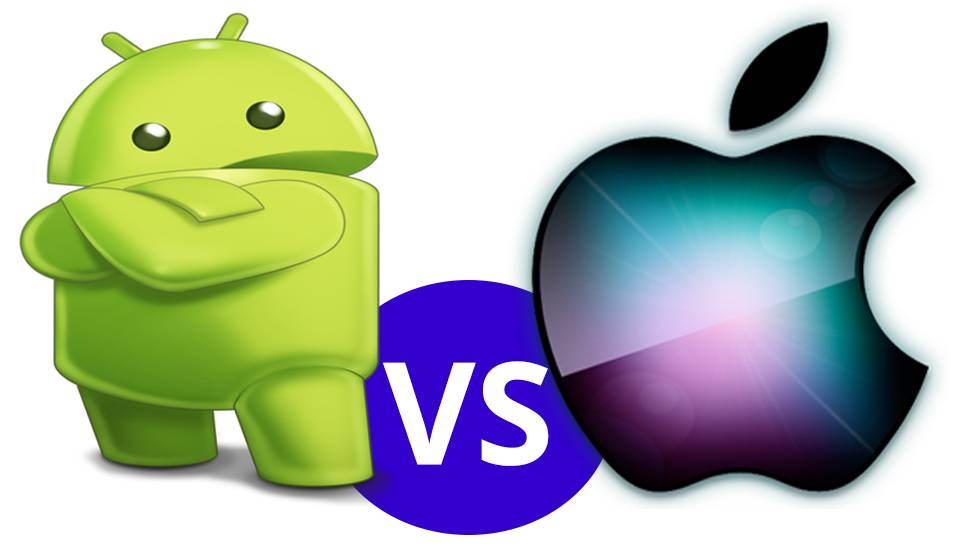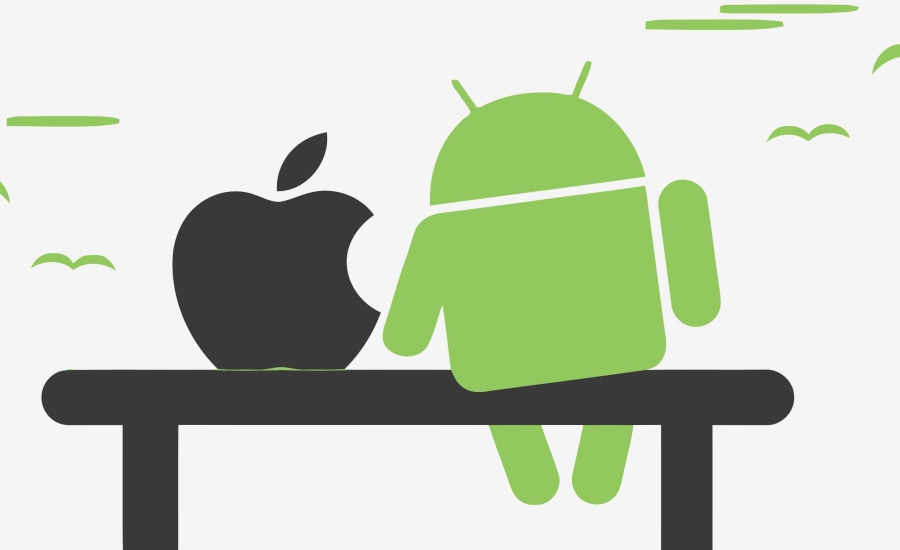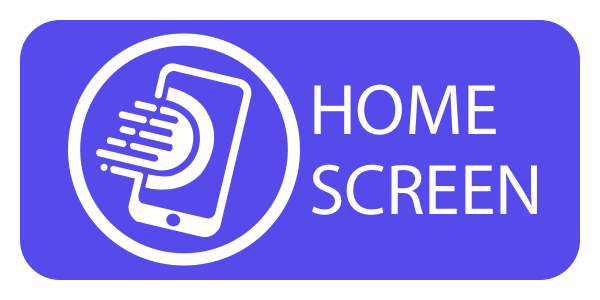iOS vs. Android - a comparison of the two operating systems

Choosing an operating system for your smartphone is one of the most important decisions you have to make. The two most important operating systems on the market are iOS, developed by Apple, and Android, created by Google. Both systems have their advantages and disadvantages, and the final choice depends on your needs and preferences. In this article, we will look at both systems from different angles.
1. interface and Design
iOS: Apple is known for its minimalist and elegant design. The iOS operating system offers a simple and consistent interface that is prized for its clarity and intuitiveness. App icons are clear and well-organized on the home screen, and navigation is seamless.
Android: Android offers more flexibility in customizing the interface. You can choose from a variety of launchers and themes to give your device a unique look. For those who like to experiment with the look of their device, Android provides the perfect platform.
2 The App Ecosystem
iOS: Apple's App Store is one of the largest sources of apps in the world. You'll find a wide range of apps there, from office productivity products to games and creative tools. Apps in the App Store are carefully moderated, which affects their quality and safety.
Android: The Google Play Store also offers a huge selection of apps, and is more open to diversity. This means you can find apps that are not available on iOS. However, this diversity can affect the quality and security of apps.
3 Security and Privacy
iOS: Apple places great emphasis on user security and privacy. iOS is known for its strong security mechanisms, with features such as Face ID and Touch ID providing additional protection for user data.
Android: Android also offers various security features, such as fingerprint scanning and facial recognition. However, due to the variety of devices and manufacturers, the level of security can vary more.
4 Performance and Optimization
iOS: iOS is designed specifically for specific Apple devices, allowing for excellent optimization and smooth operation. iPhones are often considered some of the fastest smartphones on the market.
Android: Android runs on a wide variety of devices from different manufacturers, which can affect optimization. However, many flagship Android smartphones offer excellent performance and smooth operation
5 Price and Availability
iOS: iPhones tend to be more expensive than many Android smartphones. This is an important factor that influences the purchase decision.
Android: There are many models of Android smartphones available in different price ranges, giving you more budget flexibility.
6 System Updates
iOS: Apple frequently releases system updates for older devices, meaning that even older iPhone models can benefit from the latest features and security.
Android: System updates for Android devices can depend on the manufacturer and carrier, which can cause delays in accessing the latest system versions.
7 Ecosystem and Additional Services
iOS: When using Apple devices, you have access to a broad ecosystem that includes products such as the Apple Watch, iPad, Mac and Apple TV, as well as services such as iCloud, Apple Music, iMessage and more.
Android: Android is integrated with Google services such as Gmail, Google Drive, Google Photos and many others. It is also a platform that runs on many different types of devices, including TVs, smartwatches and smartphones.
8 Personalization
iOS: While iOS allows you to customize screen backgrounds, organize icons and set up widgets, it is less flexible than Android when it comes to personalization.
Android: Android offers much more freedom to customize the look and functionality of your device. You can customize the look of the interface, add widgets, change icons and much more.
9 Support
iOS: Apple is famous for its excellent technical support and warranty, which means that if you have problems, you are sure to get professional help.
Android: Technical support depends on the manufacturer and operator, which can result in varying levels of customer service.
10. device size and selection
iOS: Apple offers a relatively small number of iPhone models, which can mean fewer choices in terms of size and features.
Android: There are many different models of Android smartphones, ranging from compact devices to large phones with advanced features.
11. developer friendliness
iOS: Apple has strict rules for apps in the App Store to ensure quality and security. For some developers, this may mean more limited options.
Android: Google's Play Store is more open to developers, which gives more freedom to create and distribute apps.
Summary
Choosing between iOS and Android is a decision that depends on your individual needs and preferences. iOS offers simplicity and high quality, while Android gives you more flexibility and customization. It's also a matter of what ecosystems and additional services are important to you.
There is no definitive answer to the question of which system is better, as both have their advantages. Ultimately, it's up to you to decide which system best meets your expectations and needs.
When choosing a new smartphone, consider what is most important to you: whether it's the simplicity and consistency of the iOS interface, or the greater flexibility and customization of Android. Ultimately, you and your preferences should be the final judgment in this choice. All of this is aimed at providing you with a device that perfectly fits your lifestyle and meets your mobile technology expectations.
In the following article, we will compare two tech giants - the latest iPhone 15 Pro Max and Samsung Galaxy S23 Ultra. We will focus on the differences arising from the use of different operating systems, iOS and Android, to help you understand which of these flagship smartphones might be better for you.


Leave a comment